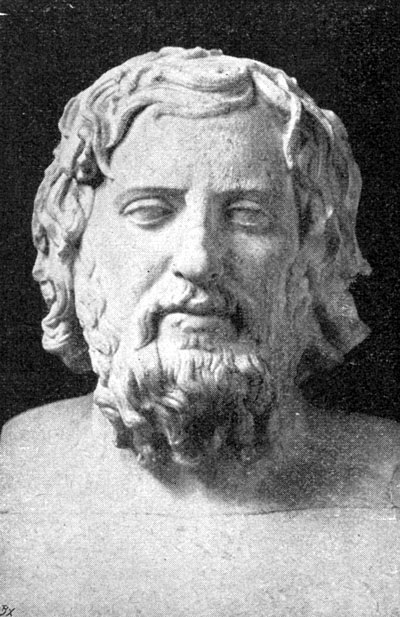Œuvres
Xénophon citations célèbres
Le Banquet
“Cri de joie des mercenaires grecs lorsqu’ils aperçoivent enfin au loin les rives du Pont Euxin.”
La mer ! La mer !
Θάλαττα! θάλαττα!
grc
Anabase
Anabase
Anabase
Xénophon: Citations en anglais
Bk. 1, ch. 6; as translated by Henry Graham Dakyns in Cyropaedia (2004) p. 29.
Cyropaedia, 4th Century BC
Contexte: That... is the road to the obedience of compulsion. But there is a shorter way to a nobler goal, the obedience of the will. When the interests of mankind are at stake, they will obey with joy the man whom they believe to be wiser than themselves. You may prove this on all sides: you may see how the sick man will beg the doctor to tell him what he ought to do, how a whole ship’s company will listen to the pilot.
Bk. 1, ch. 6; as translated by Henry Graham Dakyns in Cyropaedia (2004) p. 29.
Cyropaedia, 4th Century BC
Bk. 3, ch. 2; pp. 88-89.
Anabasis
Contexte: On making prisoners of our generals, they expected that we should perish from want of direction and order. It is incumbent, therefore, on our present commanders to be far more vigilant than our former ones, and on those under command to be far more orderly, and more obedient to their officers, at present than they were before…On the very day that such resolution is passed, they will see before them ten thousand Clearchuses instead of one.
Memorabilia of Socrates Bk. 1, ch. 2, as translated by Sarah Fielding in The Whole Works of Xenophon (1840), p. 523.
Contexte: It is only for those to employ force who possess strength without judgment; but the well advised will have recourse to other means. Besides, he who pretends to carry his point by force hath need of many associates; but the man who can persuade knows that he is himself sufficient for the purpose; neither can such a one be supposed forward to shed blood; for, who is there would choose to destroy a fellow citizen rather than make a friend of him by mildness and persuasion?
Bk. 3, ch. 2; pp. 88-89.
Anabasis
Contexte: On making prisoners of our generals, they expected that we should perish from want of direction and order. It is incumbent, therefore, on our present commanders to be far more vigilant than our former ones, and on those under command to be far more orderly, and more obedient to their officers, at present than they were before…On the very day that such resolution is passed, they will see before them ten thousand Clearchuses instead of one.
Hellenica Bk. 7, as translated by Rex Warner in A History of My Times (1979) p. 398.
Hellenica Bk. 4, as translated by Carleton L. Brownson (1918)
“Well, then,” said Callias, “take a place; for the guests, though well fed, as you observe, on seriousness, are perhaps rather ill supplied with laughter.”
Symposium, 1.11-13
“The most delightful of all music, that of your own praises.”
Hiero, ch. 3, as translated by Richard Graves in The Whole Works of Xenophon (1832) p. 626).
Bk. 1, ch. 6; as translated by Henry Graham Dakyns in Cyropaedia (2004) p. 31.
Cyropaedia, 4th Century BC
The Cavalry General, ch. 6, as translated by Henry Graham Dakyns in The Cavalry General (2004) p. 26.
Words spoken by Socrates to Antiphon in Memorabilia, 1.6.11.
“Clearchus spoke, and his words were few; "Conquerors do not, as a rule, give up their arms."”
Bk. 2, ch. 1.
Anabasis
